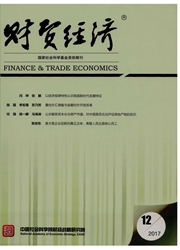

 中文摘要:
中文摘要:
要素市场扭曲会从多层次影响资源配置效率,包括行业间、行业内企业间、企业内产品间。本文在多产品异质性企业框架内讨论要素市场扭曲对企业内资源配置的影响,其中企业内资源配置效率可以用企业核心产品出口比重来表示。理论上,本文将外生的要素市场扭曲嵌入多产品企业模型,讨论要素市场扭曲对多产品企业核心产品出口比重的影响机制。然后,利用2000-2011年中国海关贸易数据库与中国各地区市场化进程指标进行经验分析。结论发现:要素市场扭曲降低了多产品企业核心产品出口比重;这一效果对于外资企业和私营企业尤为显著;在考虑了不同指标、内生性等问题后上述结论依然稳健。本文政策含义是促进要素市场化改革,有利于淘汰企业内的外围或“僵尸”产品,提升微观企业资源配置效率。
 英文摘要:
英文摘要:
Factor market distortion will affect the resource allocation efficiency at different levels, including inter-industry, across and within firms. This paper will discuss the effects of factor market distortion on the within-firms resource allocation efficiency under the multiproduct framework, in which we measure efficiency by export ratio of the core competent product. In theory, we will nest the factor market distortion into multi-product firms model to discuss the mechanism. In empirical analysis, we will use Chinese Customs Data and degree of factor market distortion at the province level. We find that, factor market distortion indeed decreases the export ratio of core product of the multiproduct firms, which is more apparent for foreign and private firms. The above conclusions are robust for different measurement and regression methods. Therefore, from the policy perspective, the decrease in factor market distortion is important for eliminating the peripheral products and increasing the resource allocation efficiency within multiproduct firms.
 同期刊论文项目
同期刊论文项目
 同项目期刊论文
同项目期刊论文
 期刊信息
期刊信息
